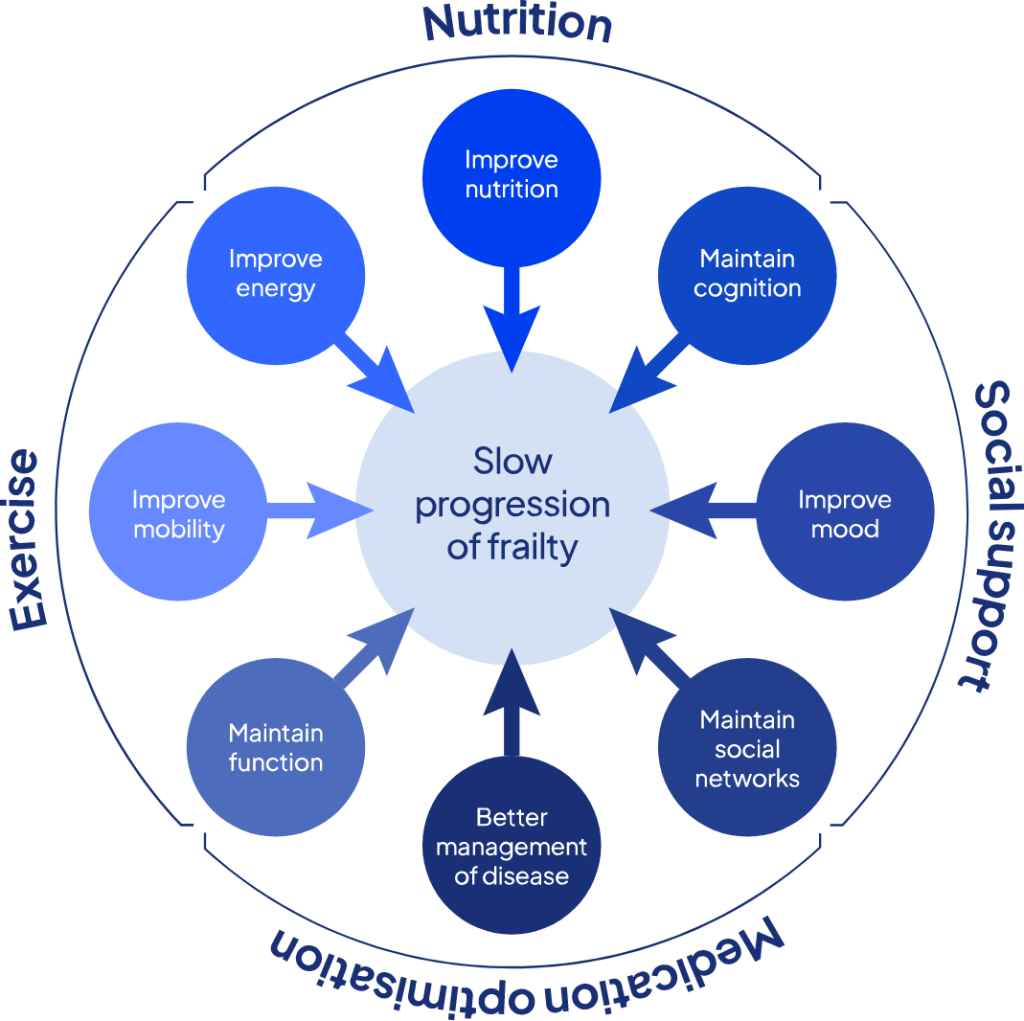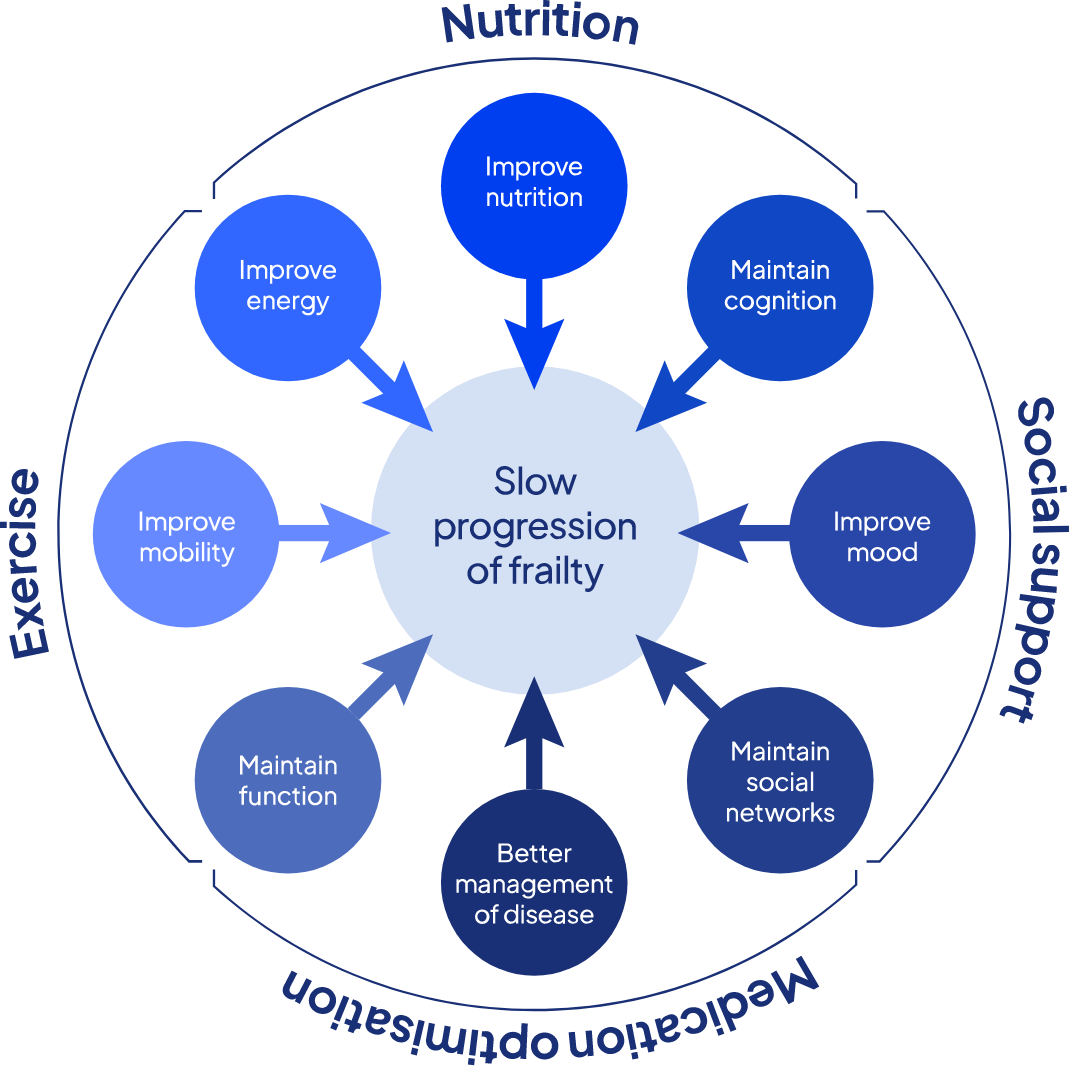FITTEST Study
Expressions of Interest are open
Are you an Australian over the age of 65 years or 55 years if you identify as Aboriginal and/or Torres Strait Islander and interested in a being involved in a research study?
Participate in a study aimed at understanding how to improve health and wellbeing of older adults by preventing or slowing frailty.
In the FITTEST Study, our team of health professionals and researchers seek to support older people so that they can maintain their independence and remain in control, living at home and connected to their community.
Frailty is a medical condition associated with the ageing process, and sometimes involves:
Weight loss
Low energy
Reduction of muscle strength
Reduced quality of life
About the FITTEST Study
We know that programs that promote good nutrition, regular exercise, optimisation of medicines, and social support networks can reduce frailty levels. However, these programs are not routinely available and, where they are, people do not always join in.
In the FITTEST Study we will compare different ways to support older people to participate in frailty prevention programs. We want to understand whether a supervised or a self-directed activity program can slow or reverse frailty in older adults.
FITTEST stands for Frailty Interventions Through Specific Therapies.
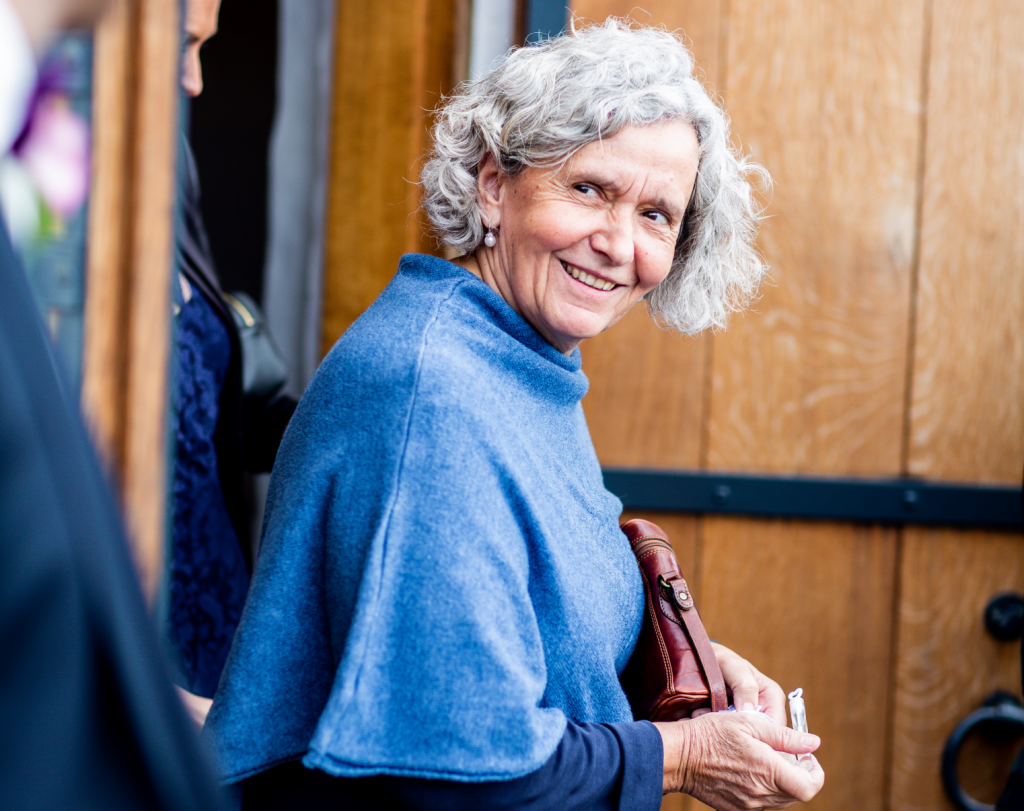
What is involved if I participate?
A program to optimise your exercise, nutrition, medication and social support based on latest research, with check-ins at 6 and 12 months.
You will be randomly assigned to receive a self-directed program with online resources or a supported program (involving two exercise sessions each week with an exercise professional, one dietitian assessment and fortnightly/monthly health coach support) with online resources.
What do we want to find out in this study?
We want to understand if the programs change frailty, quality of life, physical function and activity, diet, medication plans, social support networks, and wellbeing.
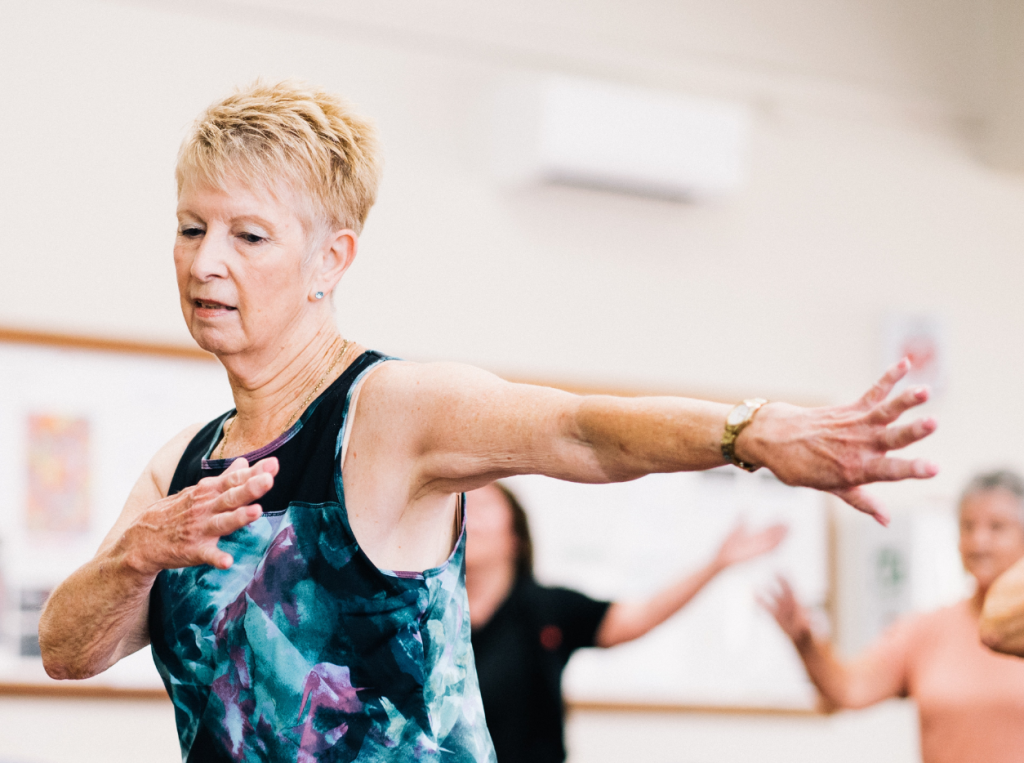
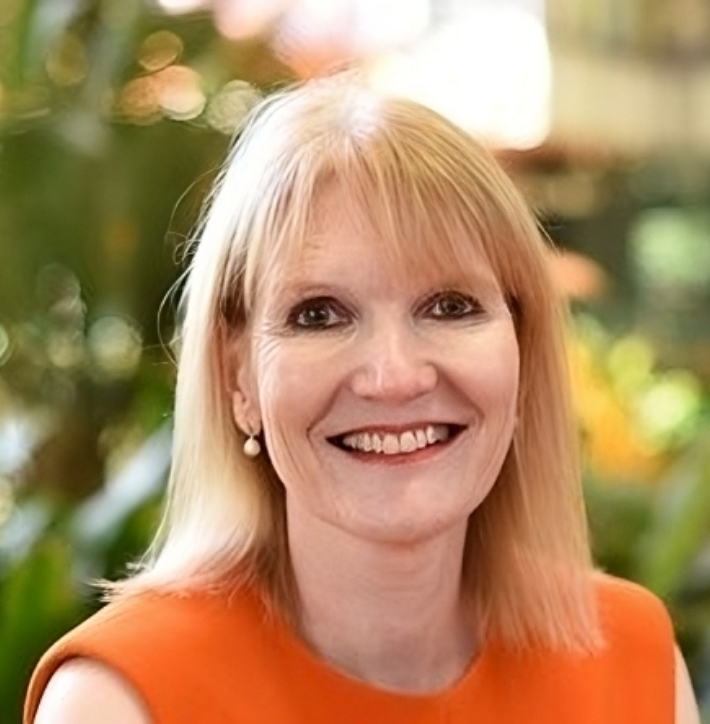
Who is conducting and paying for this research?
This study is funded by the Medical Research Future Fund (MRFF) Dementia Ageing and Aged Care Mission (APP2016045). Professor Ruth Hubbard, Masonic Chair of Geriatric Medicine at the Centre for Health Services Research at the University of Queensland, is the Principal Investigator for this study.
Frailty is not an inevitable part of ageing
Learn more about frailty by watching this informative video produced by Centre of Research
Excellence in Frailty and Healthy Ageing, University of Adelaide, Australia.
Participant information
This study is being led by the University of Queensland and involves researchers from several Universities and hospitals around Australia, and in Canada and the UK. Only people in Australia will be invited to take part in this study.
The study is funded by the Australian Government Medical Research Future Fund. There is also in-kind support from several groups such as Council on the Ageing Queensland (COTA QLD), Council on the Ageing Western Australia (COTA WA) and the Australian Association of Gerontology.
All study-related tests and treatment sessions will be provided at no cost to you.
The study is registered on the Australian New Zealand Clinical Trials Registry (ACTRN12624000693527).
Apart from what is listed on the main information sheet, we ask that you let us know if anything changes for you that might alter what you’re doing in the study. Some examples are:
- If you are going away e.g., on holidays, please let us know if you can’t be contacted for a week or two.
- We can help you take part in the study if you’re staying with friends or family. For example, we can help you change your exercise or food plan while you are away from home.
- If you become ill or put into hospital it would be good if you or someone can let us know. This way we will know not to contact you, or only get in touch about certain things you want to hear about. You might need to get medical approval to restart with parts of the study, e.g., certain exercises.
If there are new findings related to the program while this study is under way, we will let you know, discuss with you what this means for you, and whether you want to continue in the study. For example, if we are wanting to introduce a new exercise that is then known as more effective, we would provide you with this information so you could start on it straight away. If you decide to continue in the study, we will ask you to sign an updated consent form.
At the end of the study, we will send a letter to your geriatrician and GP – if you agree – telling them that the study has ended. The study might end earlier than expected, and if it does the research nurse will let you know and tell you the reason.
It is important to share the findings of the study so that the potential benefits of research are available to a wide range of individuals and organisations e.g., other researchers, consumers, policy makers, the community. We also have obligations to the funding body to share this information. Study results will be published in scientific journals. To protect your privacy, reports and publications from this study will not contain any information that could identify you as a participant in this study. If you checked the box to receive a summary of the study findings, you will receive a summary report probably round the middle of 2027.
Please keep copies or originals of all the documents from the study until it has ended.
